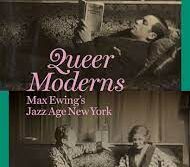 Sweet and Low
Sweet and Low
by Nick White
Blue Rider Press. 304 pages, $25.
IT MUST be intimidating for young Southern writers of fiction starting out to feel that they must measure up to writers like Mark Twain, William Faulkner, Eudora Welty, and Flannery O’Connor, to name just a few. Mississippi native Nick White is clearly aware of the legacy of these writers, but he’s also ready to carve a new path in the short stories in his debut collection, Sweet and Low.
Set mostly in the Delta region of Mississippi where White was born and raised, the collection is divided into two sections. In a story in the first section, “The Lovers,” a widow slowly realizes the truth about her husband’s secret life after she discovers an unrecognizable pocket watch among her husband’s belongings. Meanwhile, that watch’s owner—an ex-lover of the dead husband—tries to put the affair behind him and to focus on his current love interest. The two characters swirl around each other until the story reaches a surprising and well-wrought conclusion. In “Gatlinburg,” two men head to a Tennessee resort to try to inject romance back into their stale relationship. And in “These Heavenly Bodies,” a trouble-making teenage boy becomes enraptured with conjoined twins who are spending the summer in his hometown.
The stories in the second section are interlinked, focusing on the life of one Forney Culpepper, who matures from childhood to early middle age over the course of six varied and finely crafted stories. Even though Forney is heterosexual, gay and lesbian characters figure prominently in the stories and serve as a reminder that in the macho South of the past, homosexuality needed to be hidden or suppressed. In “The Exaggerations,” Forney reflects on the life of his uncle, who raised him alongside his aunt. Forney later realizes that Uncle Lucas, a shameless teller of exaggerated yarns, was hardly the sexless, confirmed bachelor that he wanted people to believe he was. The story concludes with a devastating moment of grace. In “The Curator,” Forney is a struggling writer and also “the curator” at the museum-slash-house of a writer referred to as “the Author,” clearly modeled on William Faulkner: “Outside of town, around the country, a generation of emerging writers read his work, were inspired by it, and attempted to imitate the leafy Southern voice he had perfected in his prose.” If Forney is unnerved by “the Author,” it’s clear that White himself is not. The story is an homage of sorts, but also a gentle rebuke to those who think there is only one type of “leafy” Southern author. White’s stories capture the flavor of the South without turning the people who populate his fictional worlds into corn-pone caricatures. His prose is lively but not showy, and he prefers clarity over obfuscation. Still, his stories are layered and complex, full of the maddening mysteries that make up the human condition. In “The Last of His Kind,” Forney is middle-aged and his wife has left him. He’s living in his childhood home with his washed-up singer mother and his clearly gay young son Henry. Near the end of the story, Forney warns his son, “You understand me … what can happen to a person if he isn’t careful?” But it’s clear that Henry lives in a new world, and a new South, where being gay won’t defeat him the way it did his ancestors. While today’s South still isn’t a bastion of tolerance, it’s certainly a far cry from the world Forney’s Uncle Lucas inhabited. And Nick White is proof of that—a proud queer writer, telling stories about people who refuse to be invisible any longer. Martin Wilson is the author of the novels What They Always Tell Us and We Now Return to Regular Life.
________________________________________________________





